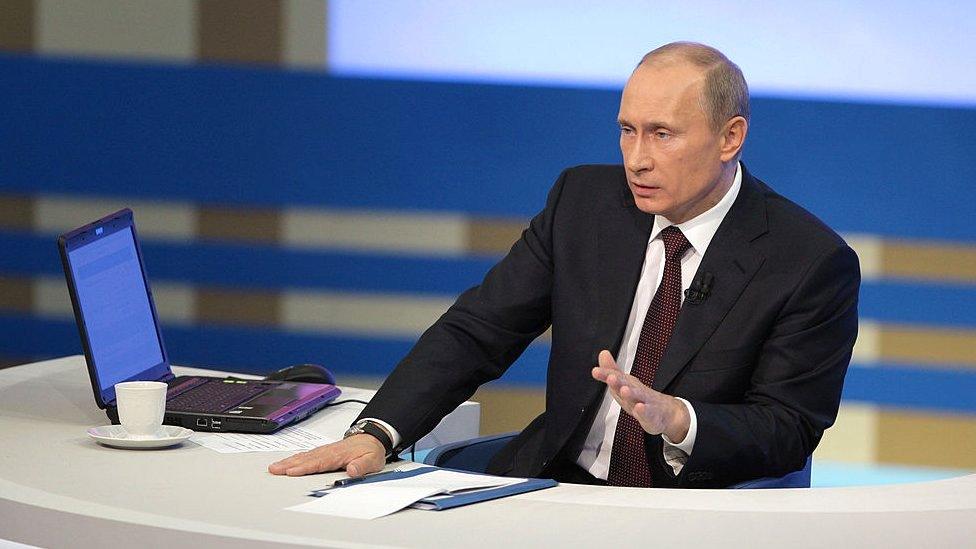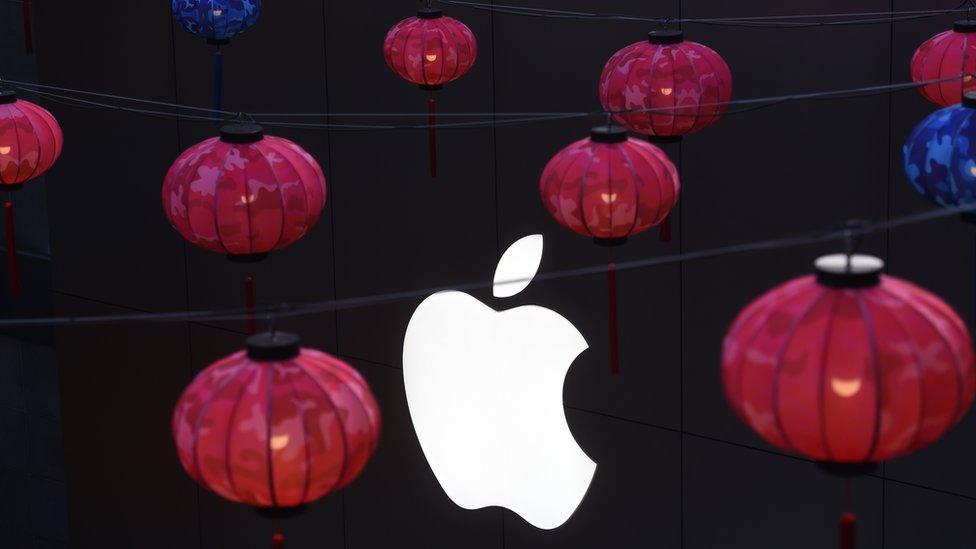Putin bans VPNs in web browsing crackdown
- Published

The law banning VPNs will come into force later this year
Vladimir Putin has banned virtual private networks (VPNs) and Tor in a crackdown on apps that allow access to websites prohibited in Russia.
The law, signed by President Putin, was passed by Russia's parliament last week and will come into force on 1 November.
A second law to ban anonymous use of online messaging services will take effect on 1 January next year.
It would make it easier for the state to snoop on citizens' browsing habits, one internet security expert suggested.
The laws signed by Mr Putin are meant only to block access to "unlawful content" and not target law-abiding web users, the head of the lower house of parliament said, according to the RIA news agency.
One feature of the second law is the provision to require internet operators to restrict users' access if they are found to be distributing illegal content.
What is a VPN?
EXPLAINED: What is a VPN service?
VPNs allow users to mask their identity online by funnelling web browsing and other internet activity through another computer - sometimes one in a different country.
As a result, users can hide their IP addresses and access online material that has been censored or blocked by their internet service provider.

The move was part of a trend against privacy-protecting technologies that appeared to be "accelerating around the world", according to Dr Joss Wright at the Oxford Internet Institute.
"Up till now these tools have slipped under the radar," he told the BBC.
"But as states get more technical proficiency and as people use [VPNs] on a broad scale it's being perceived as a problem."
One consequence of taking a tougher stance on such technologies was an increased capacity for state-level surveillance of citizens, he added.
Dr Wright pointed out that there were many widely recognised uses for services like VPNs.
"Companies and businesses use them for remote work - people overseas accessing corporate networks," he explained.
Police advice
Indeed, in the UK, the Metropolitan Police recently released a cyber-security advice video for members of the public that encourages the use of VPNs, external for accessing public wi-fi.
This is in order to prevent hackers snooping on people's browsing data.
Separately, authorities in China have recently taken a stricter stance on VPNs.
The government announced in January that VPN providers would need to obtain a licence to distribute their products.
Apple was criticised over the weekend by such firms after it pulled many of these apps from the Chinese App Store.
- Published31 July 2017
